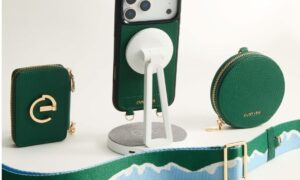Car ownership in the UAE is easy and necessary. Although public transportation is reliable, affordable, and in some cities, world-class, the availability of luxury car models and low-cost fuel are too alluring to pass up for any motorist. It also makes sense to want to change vehicles now and then, which means reselling to fund one’s next car.
What relevance does a VIN number check have on your car’s resale value?
The History of Your Car
The practical car buyer does everything to make sure they’re well informed before a used car purchase, from comparing prices to test driving the car. One other due diligence they’ll do is to run a vehicle history check on the car they’re considering.
To check the car history, a buyer will want to know the chassis number. The chassis number is also called the vehicle identification number (VIN).
A VIN is a 17-digit number that gives you access to the history of the car from the time it leaves the manufacturer. It’s information that tells car buyers whether the vehicle has had problems on the road, been through repair shops, or if the manufacturer has recalled it.
A buyer can reference the VIN information to negotiate a price if the history isn’t favorable. Conversely, you as the seller can uphold the price if the history is favorable.
What a Car History Check Reveals
A VIN check provides transparency, giving assurance to the buyer about the car they’re thinking of buying. When you look at tips on how to buy a car in the UAE, checking the VIN is part of the list. Although a thorough inspection of the vehicle confirms the condition of a vehicle, it does not always uncover past issues the way a car history check shows.
Here are some of the details buyers can expect to get from a VIN check.
Comprehensive Vehicle History
Because checking the VIN of a vehicle offers insights into its condition and history, it can determine its market value. Buyers can use information such as structural damage, frequent repairs, and road incidents to gain an advantage during negotiation.
The report will list reported accidents as well as provide information about the severity of the damage.
But if your car has had a clean record, no accidents or minor repairs (e.g. fender bender, paint chips, etc.), you’ll be confident about pricing your car at a premium when you put it on the market.
With a comprehensive vehicle history, trust between parties is also established.
Confirm Odometer Data
The odometer reading plays a big part in a car resale because it indicates just how far you’ve driven it, or the total mileage (or kilometers driven), since leaving the dealership. The accuracy of the odometer is crucial to maintenance, but it is also an important detail for buyers to check.
A comprehensive car history check will show recorded odometer readings, demonstrating the accuracy of the mileage and assuring buyers the odometer has not been tampered with.
Your odometer can verify that maybe you haven’t driven the vehicle as much, so there’s no concern for wear and tear. Its original components, from the brake pads to the filters, are still intact and in good condition. You can use this information to establish the value of your vehicle.
Title and Ownership
Vehicle ownership must be established when a secondhand car goes on the market. A VIN check provides detailed information about the registered owner (or owners). If you bought the car from a previous owner, that person’s name will also show up on the list of owners.
In addition to the list of owners, the type of usage will also be indicated. Was the vehicle used as a rental, taxi, or for personal use?
Under title information, the car history report will show whether your vehicle has a clean title. Was it rebuilt or salvaged?
Along with these details, recall history and theft reports will also figure into the VIN check.
In all, the report allows any buyer of your vehicle to have the information they need to make a sound decision. As the seller, you can use the report to build trust with buyers and strengthen the market value of your vehicle.
Where Do You Find the VIN?
The VIN is found in a few places inside your car. You can usually find it on the lower left corner of the dashboard, right in front of the steering wheel. Look through the windshield on the driver’s side and you’ll see it.
Other areas where you can find the VIN are:
- Inside the driver side door jamb
- Driver side door post
- Front of the car frame
- Beneath the spare tire
- Front of the engine block
Your car’s history, mileage, age, and overall condition all have a role to play in the resale value of your vehicle. When you’ve taken the time to maintain your car and driven it with care, let potential buyers know through a car history report.



































